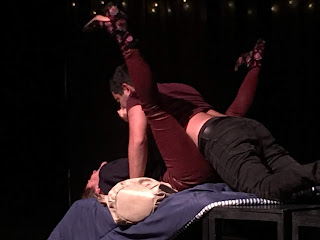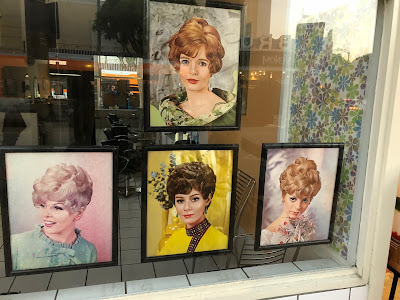Ever since I was on MASH I learned the value of research – especially to nice places I can write off.
If you tune into my podcast later this week I’ve got a humorous take on my Scandinavian adventures and I’ll introduce you to a couple of interesting people I met along the way.
So thanks for your patience in the lag time between writing and then seeing your comments posted. There was a nine hour time difference and the Baltic Sea is not an internet hot spot.
I love to travel – well, let me amend that – I love to BE there, I HATE to travel. But then, who doesn’t these days? If they could beam me to Copenhagen I’d go back this weekend.
But I’m not a very adventurous traveler. I’ve been to China and now Russia and am constantly paranoid behind the Iron Curtain. Men and women in starched uniforms with stars on their epaulets scare the crap out of me. There’s always that fear that something will be amiss with my passport or visa or their intel has told them I did MANNEQUIN 2 and I wind up in Siberia. All of sudden, being seen a whole bunch of times on CNN was not a good thing.
I think I make it worse because I try to appear casual and insouciant. So I probably come off looking like an idiot. And one thing I’ve noticed about both Russian and Chinese border patrols – they never smile. So I know not to joke with them. I’m not going to make Stalin laugh. Any authority figure who checks my passport could be the one to say, “Come with me please” and I’m never found again. Hey, MANNEQUIN 2 was a group effort.
But I managed to stay out of any gulags and had a fun and productive trip. More details when my new podcast episode drops mid-week. (And by the way, this week’s episode with Jamie Farr is pretty cool. Check it out.)
In the meantime, I thought I’d share a few photos. Many more will appear this week and next on my Instagram page. Follow me at Hollywood and Levine.
Happy Labor Day Weekend.
 |
| Why I love Copenhagen |
 |
| The Little Mermaid statue -- big whoop |
 |
| Everybody rides bikes in Copenhagen |
 |
| This is how you drink vodka. That's lard on the piece of bread. |
 |
| I guess in Stockholm a father is not allowed to hold a child's hand |
















































